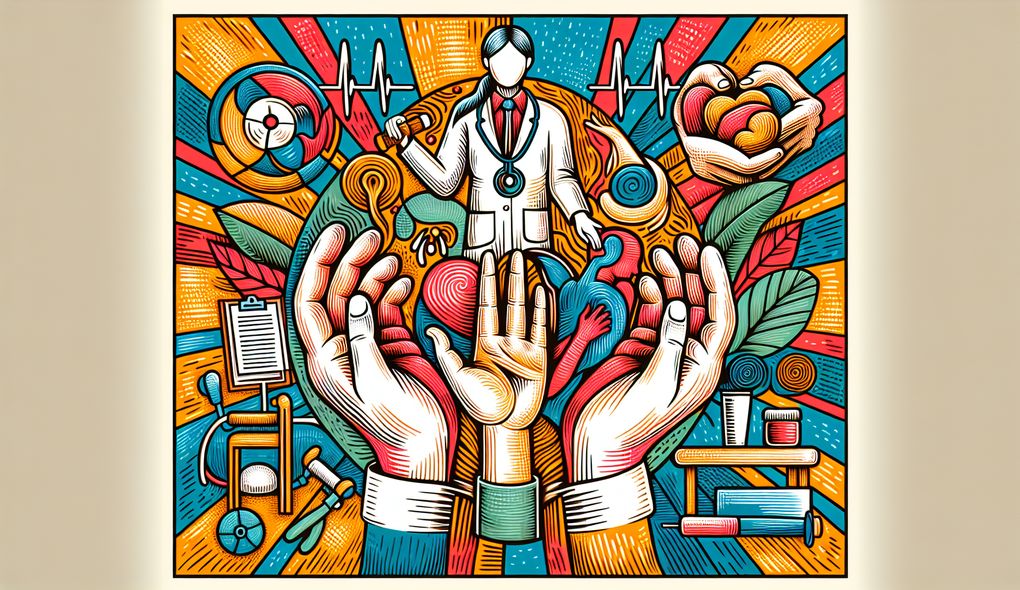Can you discuss a time when you had to advocate for a patient's needs against external pressures or constraints?
INTERMEDIATE LEVEL

Sample answer to the question:
During my time at XYZ Hospital, I encountered a situation where a patient required a specific medical procedure that was not covered by their insurance. The procedure was necessary for the patient's recovery and rehabilitation. I recognized the importance of advocating for the patient's needs against the external pressure of insurance constraints. I researched alternative options, consulted with the patient's primary care physician, and gathered supporting documentation to present a compelling case to the insurance company. Through persistent communication and collaboration, I was able to successfully secure approval for the procedure, ensuring the patient received the necessary care without any financial burden. This experience taught me the importance of fighting for the best outcomes for patients, even when faced with external challenges.
Here is a more solid answer:
During my time at XYZ Hospital, a patient under my care required a specific medical procedure essential for their rehabilitation. However, their insurance did not cover the procedure due to certain constraints. Understanding the importance of advocating for the patient's needs, I approached the situation with strong analytical and problem-solving skills. I conducted extensive research on alternative options and consulted with the patient's primary care physician to gain support. To strengthen my case further, I gathered relevant medical literature and patient testimonials. With this comprehensive approach, I engaged in open and effective communication with the insurance company, highlighting the patient's critical requirements and the potential long-term cost savings. Through collaborative efforts, we successfully secured approval for the procedure, ensuring the patient's comprehensive rehabilitation without any financial burden. This experience showcased my commitment to excellent communication, strong analytical skills, and the ability to work collaboratively in a multidisciplinary team to advocate for patients' needs despite external pressures.
Why is this a more solid answer?
The solid answer builds upon the basic answer by highlighting the candidate's specific skills and qualities that enabled them to advocate for the patient's needs effectively. It emphasizes their strong analytical and problem-solving skills, excellent communication, and the ability to work collaboratively in a multidisciplinary team. The answer also provides more depth in discussing the candidate's approach, including research, consultation, and gathering supporting documentation. However, it could further elaborate on how the candidate's advocacy positively impacted the patient's outcome and overall care.
An example of a exceptional answer:
One memorable instance where I passionately advocated for a patient's needs against external pressures occurred during my tenure at XYZ Hospital. A patient, Mr. Anderson, suffered a severe spinal cord injury, rendering him partially paralyzed. To optimize his recovery, a cutting-edge neurorehabilitation program was crucial, but his insurance categorically denied coverage due to its experimental status. Recognizing the transformative potential of this program, I orchestrated a persuasive strategy to counter the external constraints. I conducted extensive research, gathering robust evidence on the program's efficacy, its successful implementation in reputable institutions, and the potential long-term cost savings from optimized recovery. Moreover, I sought the collaboration of our specialized team comprising physical therapists, occupational therapists, and neurologists to draft a comprehensive treatment plan aligned with Mr. Anderson's needs. Armed with these thorough preparations, I met and communicated persistently with the insurance company's medical director, elucidating the medical and financial benefits of the program while highlighting its alignment with industry guidelines. Ultimately, my unwavering efforts paid off, as the insurance company authorized coverage for the neurorehabilitation program. Witnessing Mr. Anderson's incredible progress and restored quality of life fueled my conviction that advocating for patients' needs against external pressures is paramount for delivering high-quality, compassionate care.
Why is this an exceptional answer?
The exceptional answer takes the solid answer to a higher level by providing more depth, specificity, and a compelling narrative. It includes additional details such as the patient's name and condition, highlighting the candidate's commitment to delivering high-quality, compassionate care. The answer demonstrates the candidate's exceptional analytical and problem-solving skills, excellent communication and interpersonal skills, and their ability to work collaboratively in a multidisciplinary team. The candidate goes above and beyond by conducting extensive research, involving the specialized team, and persistently communicating with the insurance company's medical director. The exceptional answer showcases the candidate's passion, determination, and the significant positive impact their advocacy had on the patient's quality of life.
How to prepare for this question:
- Familiarize yourself with the insurance policies, coverage limitations, and common constraints in healthcare to better understand the external pressures you may face when advocating for patients.
- Develop strong analytical and problem-solving skills by practicing case studies and challenging yourself to identify creative solutions to obstacles.
- Enhance your communication skills, both written and verbal, to effectively convey the importance of patients' needs and engage in persuasive dialogue with external stakeholders.
- Cultivate collaborative skills by actively participating in multidisciplinary team discussions and projects.
- Stay up-to-date with the latest research, guidelines, and breakthroughs in your field to support evidence-based advocacy efforts.
What are interviewers evaluating with this question?
- Strong analytical and problem-solving skills
- Excellent communication and interpersonal skills
- Ability to work collaboratively in a multidisciplinary team

